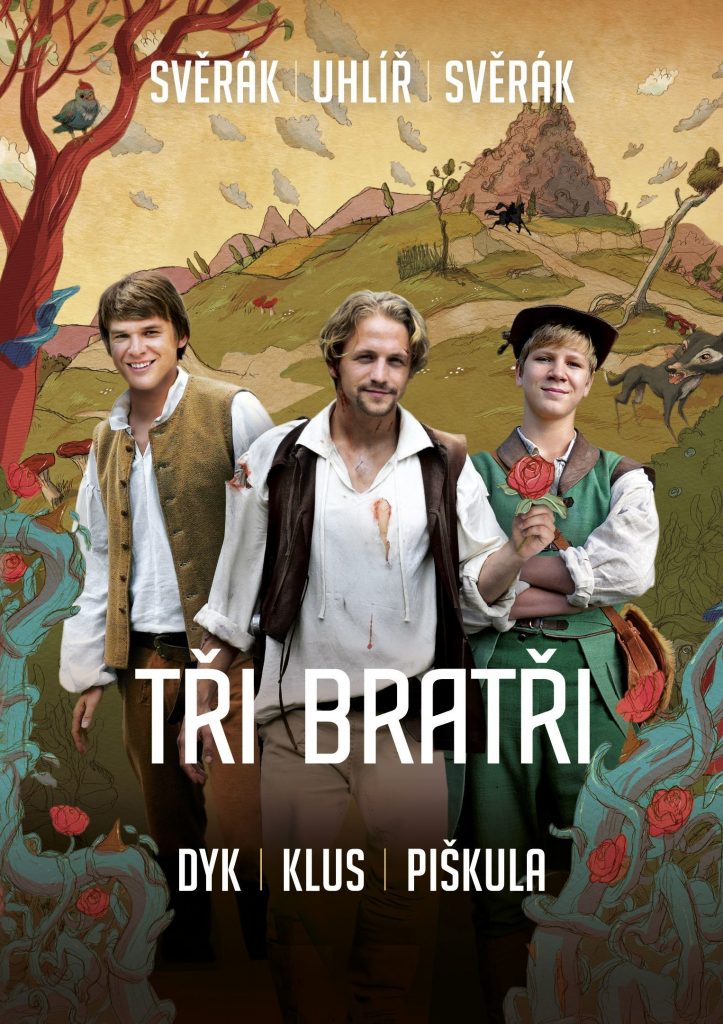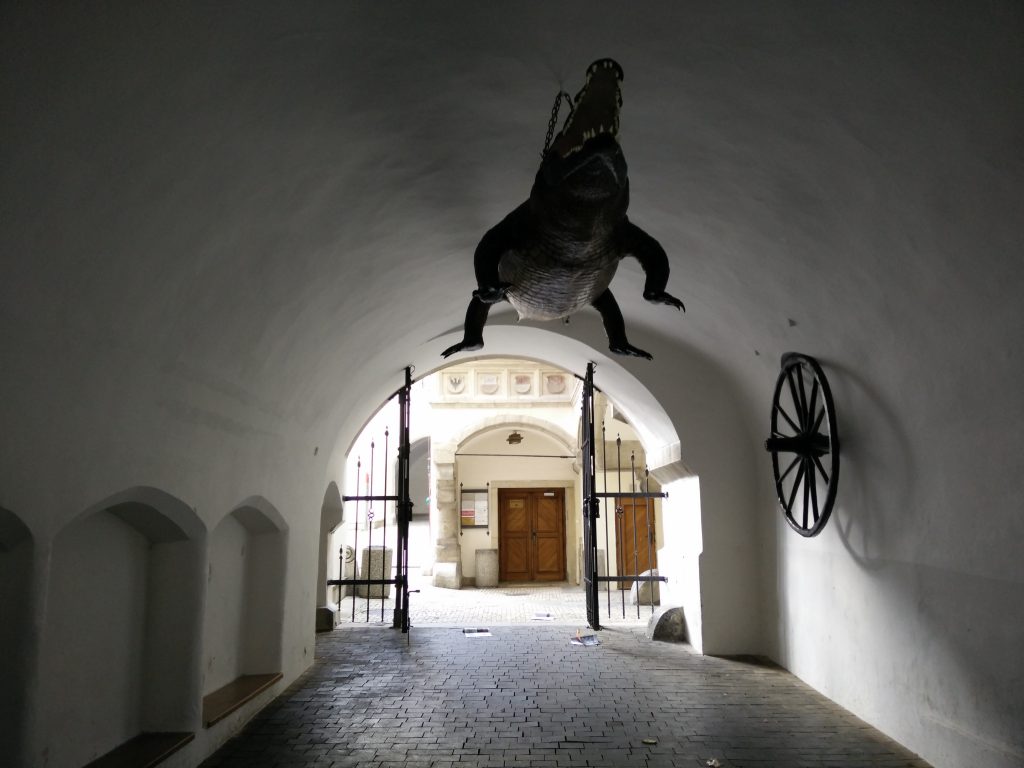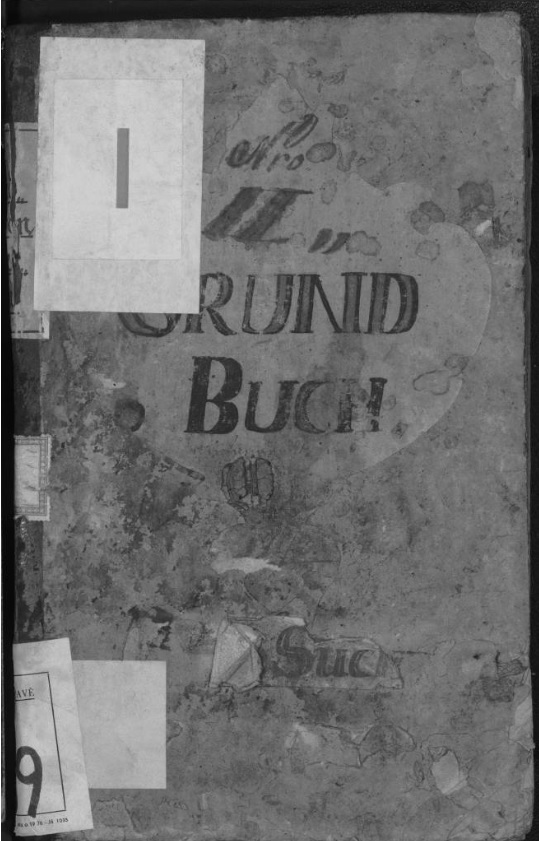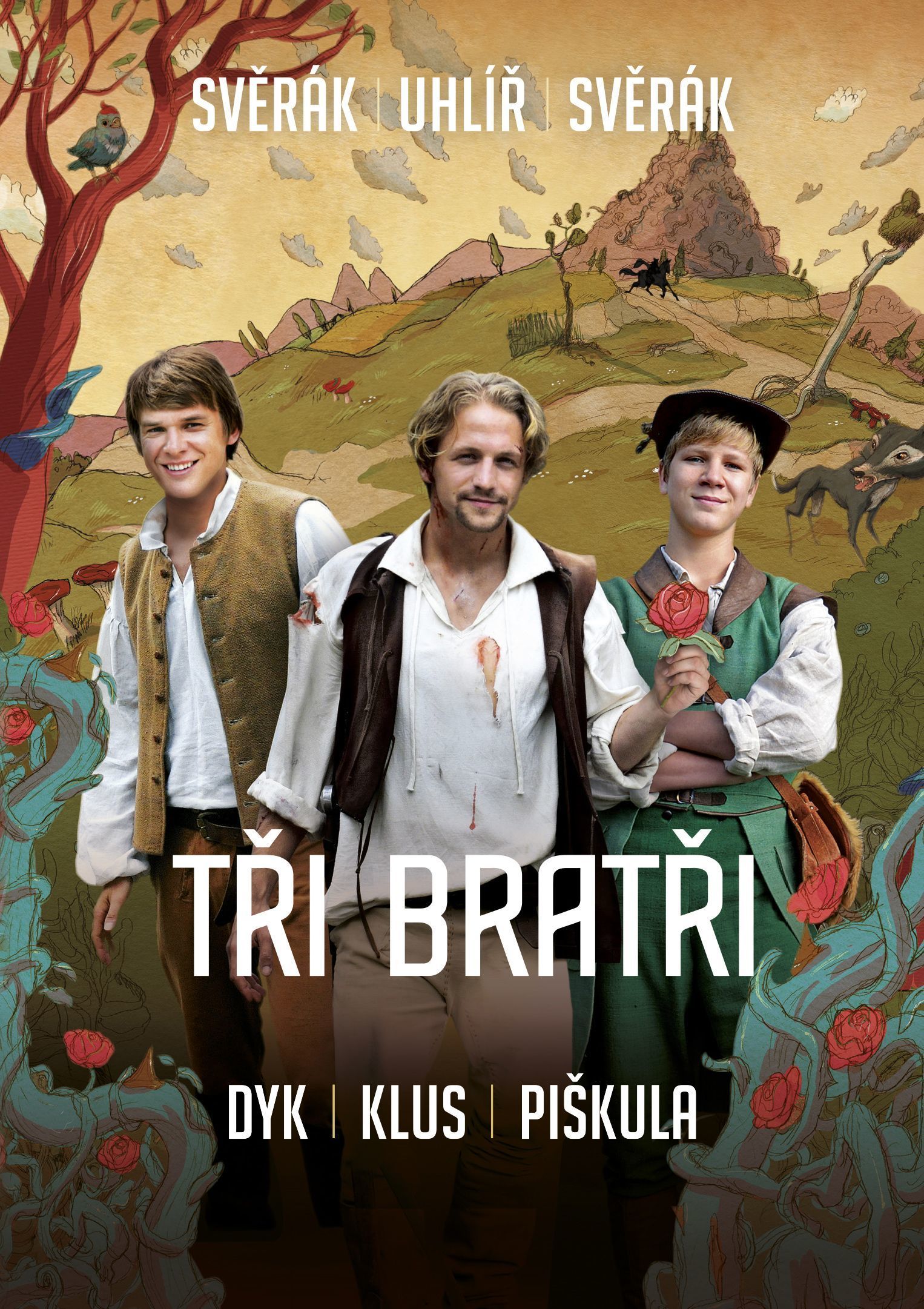
In case you did not already know this, Czechs are really into their fairy tales. In fact, ’tis the season to deck the halls – or at least the televisions – with cinematic adaptations of classic fairy tales.
Remember, the Czech lands are literally the land of fairy tales, castles, knights, dragons…

Of course we have also been watching lots of these Czech fairy tales, and let me tell you, our kids love them. My husband decided to steal a Czech tradition and incorporate it into our family (yeah, he decided this on his own!) of watching Tři oříšky pro Popelku at Christmas.
Well, the latest film we saw was Tři Bratří and it was not nearly as good, but my kids still loved it. And I have to admit, I also loved it. It made me snort with laughter at times, as well as cringe. Perhaps it was Svěrák’s intent to make me cringe, but I’m actually not totally confident it was.
But to be honest, I have had a really irritating song from this musical stuck in my head for the past three days. I imagine it would somehow help if I can memorize the lyrics. So here they are:
Já bych se ženil jako ďas
na vědomí to dávám
s tou co by měla v oku jas
a rozuměla kravám
S tou bych si zpíval do kroku
a neměl žádné vrásky
koním by dala obroku
a mě zas trochu lásky
Na tom našem gruntě vyhlášeném
voněla by pšenicí a senem
Povahou jsem spíš rapl,
já to vím.
Kdybych na ni kápl,
tak se uklidním.
Kdybych na ni,
kdybych na ni kápl –
tak se uklidním.
So, I know this is a total caricature – a ridiculous, flat, comical character straight from a fairy tale. But even still, we can learn a few interesting things about Czech history and culture from this and other scenes from this film.
1. Czechs are totally not afraid to throw religious references into their fairy tales. The sanitized modern American (cough cough Disney) versions would never be able to fly using a word like “ďas.” And praying to God for a baby? But the Czechs do these without even batting an eye; the phrases do not seem to carry significant religious weight. OR modern Czechs do not mind owning up to their historically ultra-Catholic past. OR something else is going on which I do not understand yet. Conclusion: religious language was probably an important part of daily life for our ancestors, but at the same time it might not have always carried significant spiritual meaning.
2. What does this guy dream of? Finding a wife who is beautiful, young, understands him, cares for his cows and horses, and also cares for him. He doesn’t dream of marrying a princess. He doesn’t dream of getting ridiculously wealthy. Could this caricature personify a typically Czech dream of owning and managing a successful farm? Maybe that is overstating things, but either way, my conclusion is that our Czech heritage is closely tied to the land.
3. The parts that made me cringe in this film were mostly tied to gender roles (or really embarrassingly bad puppetry). It probably comes from being raised in an ultra-politically-correct place. It also comes from being sensitive about this topic; I actually am a housewife. So yeah, I care about how this role is perceived and portrayed. On the other hand, it was somewhat of a relief for the gender roles to be so very well defined. None of this, “Be whoever you want to be,” confusion. The subtext of the entire film was more like, “Men and women are supposed to get married and live together happily ever after, aka they are supposed to have kids.” Along with, “Neither men nor women can be truly happy without their true love.” I actually find this last message far more egalitarian than the typical subtext of American fairy tales, which are pretty much solely focused on the happiness of the princess. “You can only be happy with your prince charming. Someday my prince will come. He will show me a whole new world. I would be a slave to my stepmother forever if you hadn’t come along and found my shoe.” We have this massive damsel-in-distress complex which is quite frustrating. But do Czechs? I know that the Czech Republic is still supposedly the most sexist nation in the European Union. Do traditional gender roles necessarily demote women to second-class citizen status? Could it be that something about Czech culture makes it easier for men and women to accept more traditional gender roles? If the message of who men and women are supposed to be is this clear in a 2014 fairy tale adaptation, then how much more clear would it have been in the 19th century world? Conclusion: our ancestors probably lived according to well defined gender roles which included wives keeping a house and bearing children, husbands protecting and providing (usually farming), and children being valued as precious gifts from God.
4. How did women do the laundry in the past? I have always been really interested in learning this. I doubt it was in beat to an unheard string instrument plucking away. But at the same time, earlier in the film the men were doing something similar while threshing the wheat (I mean…I guess that is what they were doing…I don’t actually know). Conclusion: Czechs in the past incorporated music into their daily menial labor.
5. The good (but forgetful) king asks his stewards to remind him to do a few things like, “remind me not to overwork and take advantage of my citizens,” and, “remind me to get this road fixed.” These were, of course, very deeply sarcastic jokes poking fun at the contrasting reality in which rulers mostly did not do these kinds of things, and rather acted more similar to the stewards, who were almost incapable of doing a simple task like loading the potatoes in the cart and asked for ridiculous high heeled shoes and Spanish collars which eventually almost choked them to death. Conclusion: Czechs often use humor to poke fun at tragic parts of reality.
My family always jokes that Danny is a “calming influence” on me, tak se uklidním is apparently pretty close to my own reality.
The part about this song that really makes me smile is the reference to his grunt, or in German, his Grund, because it’s nice to see a reference to a borrowed German word which I see every day in my genealogical research.



I think that was my favorite song in the movie